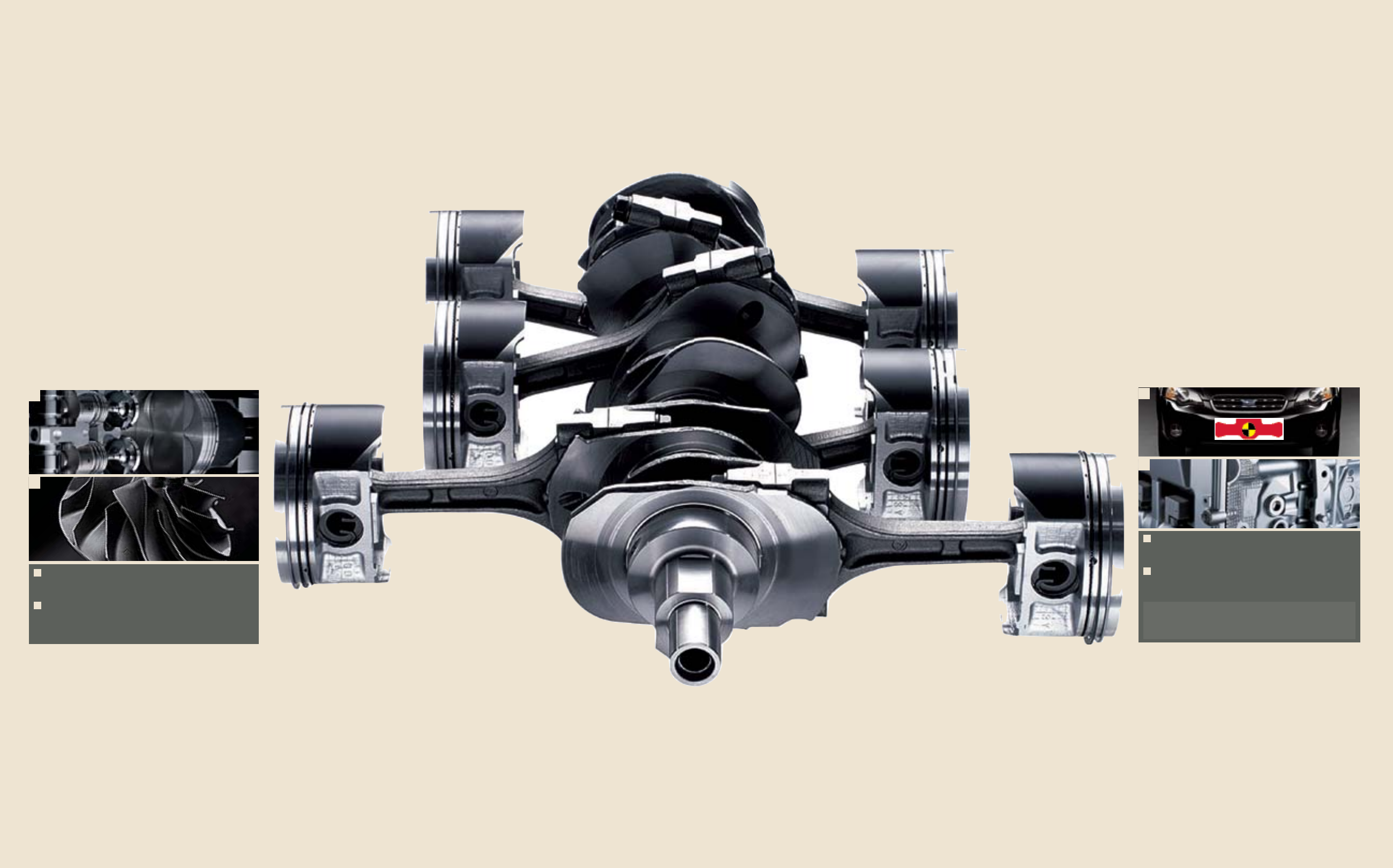
WHAT YOU SEE BEFORE YOU is the heart of a Subaru. The innovative,
horizontally opposed Subaru Boxer engine. Available in Outback vehicles as
a smooth 250-hp 6-cylinder, a potent 250-hp intercooled and turbocharged
4-cylinder, and an energetic 168-hp
1
naturally aspirated 4-cylinder. It
is unlike the more conventional engine layouts of other manufacturers in
that its cylinders are aligned on a single, horizontal plane. This remark-
ably efficient configuration results in a powerplant that is compact,
lightweight and extraordinarily well-balanced. Now with Electronic
Throttle-Control (ETC) drive-by-wire technology for more precise response,
the Subaru Boxer engine delivers outstanding power and performance.
14
|
Subaru Boxer Engine
The Subaru Boxer engine’s layout allows it to be placed
lower in the chassis, reducing vehicle center-of-gravity for
well-balanced handling.
Aluminum-alloy block and cylinder heads help to reduce
weight, thereby improving overall vehicle balance without
sacrificing strength or durability.
4
3
4
1
163 horsepower on Outback 2.5i models equipped to meet California Partial Zero Emission Vehicle (PZEV) requirements.
Outback Engines
3.0-liter 6-cylinder 250 hp, 219 lb.-ft. of torque
2.5-liter Turbocharged 4-cylinder 250 hp, 250 lb.-ft. of torque
2.5-liter 4-cylinder 168 hp,
1
166 lb.-ft. of torque
1
Our Active Valve Control System (AVCS) found on Outback 2.5 XT
and 3.0R models helps to deliver increased low-end power
while allowing for greater breathing at higher engine speeds.
Turbocharging the Subaru Boxer engine featured in the
Outback 2.5 XT and 2.5 XT Limited allows the benefit of increased
horsepower and torque without having to increase engine size or
displacement.
2
1
2
SUBARU, 1966
|
Subaru introduces the company’s trademark Subaru Boxer engine.
3


















